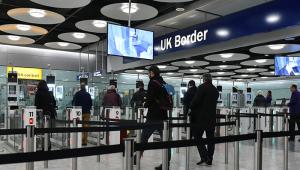The Public Accounts Committee has also expressed concern about the Department of Health and Social Care’s lack of planning for staffing and medical equipment after Brexit, in a report out today.
The MPs noted there was “significant regional variation” in funding of NHS providers and clinical commissioning groups. DHSC’s 2017-18 annual report and accounts suggest an improvement in finances when taken as a whole but this “masks the underlying deficits at local level”, the PAC report said.
MPs said the department was performing a “balancing act” by offsetting NHS providers’ deficits with a surplus from NHS England’s finances. In 2017-18, 101 of 234 NHS providers were in deficit, although this was mitigated by NHS England’s surplus, the report said. Although, 75 of the 207 CCGs reporting an overspend in the same year.
PAC chair, Meg Hillier, said the number of CCGs overspending was “concerning”.
She added: “The Department of Health and Social Care must show far more urgency in getting to grips with regional funding imbalances and demonstrate it understand the effects these have at the frontline.”
The report was also critical of DHSC’s planning for Brexit, especially around staffing and medical equipment.
It said there is a “lack of a clear plan” for recruiting staff post-Brexit and added: “We are not reassured by the department’s assertion that it has not seen a large exodus of staff since the referendum and that the number of people from the EU working in the NHS has increased.”
Health bodies recently warned that the NHS workforce shortfall could jump from 100,000 at present to almost 250,000 by 2030 without effective planning.
Despite the NHS procuring 56% of medical consumables (gloves, dressings, syringes) from, or via, the EU, DHSC is not putting specific contingency measures in place to stockpile this type of equipment, the PAC revealed.
Hillier said: “The department’s lack of clear Brexit planning could threaten the supply of medical equipment. Staff shortages could deepen. The potential consequences for patients are serious.
“These and other uncertainties are amplified by the continued absence of the government’s promised 10-year plan for the NHS, its promised plans for social care, and its promised plans for immigration.” A DHSC source has confirmed to PF the social care green paper and NHS 10-year plan are now likely to be published in the new year, rather than by the end of this year, as originally intended.
Regional variances in staff vacancies could also be overlooked, the PAC noted. The NHS examines vacancy rates at a national level - rather than a local level - which “hides underlying disparities in specific specialisms and local areas and does not allow them to fully understand the impact of staff shortages,” the report said.
The report also expressed concern that the NHS staff pay rise announced earlier this year would not be distributed fairly. By funding pay awards through the National Tariff the PAC is concerned that NHS Providers in more affluent areas will receive “disproportionately higher share of funding” because the tariff accounts for the cost of operating in different geographical locations.
DHSC has been contacted for comment.
A study from April showed increasing numbers of EU nurses and midwives leaving the UK because of Brexit.











